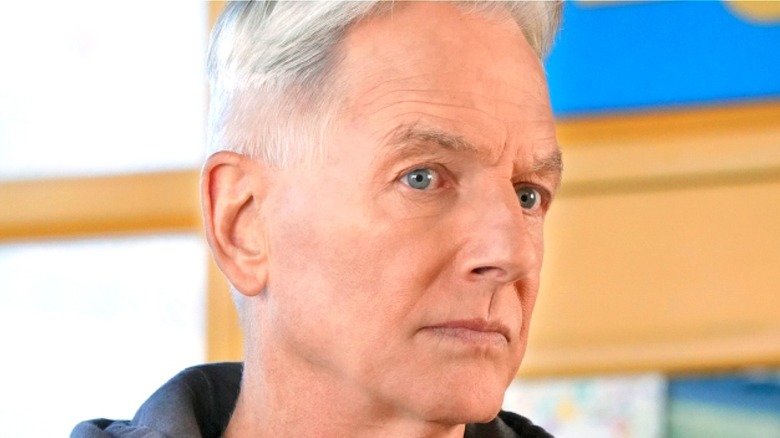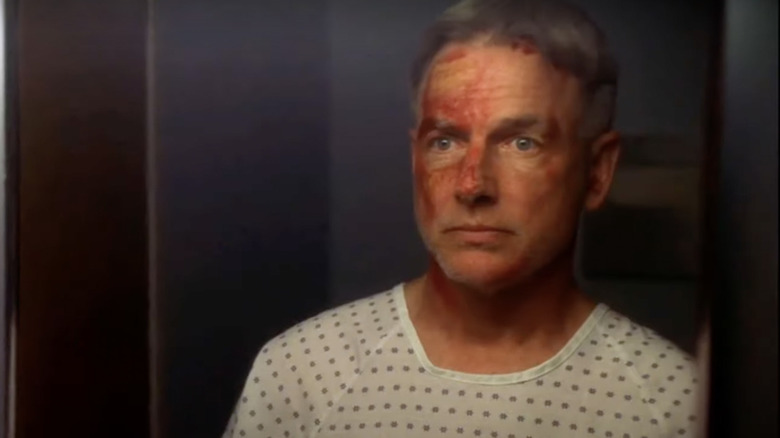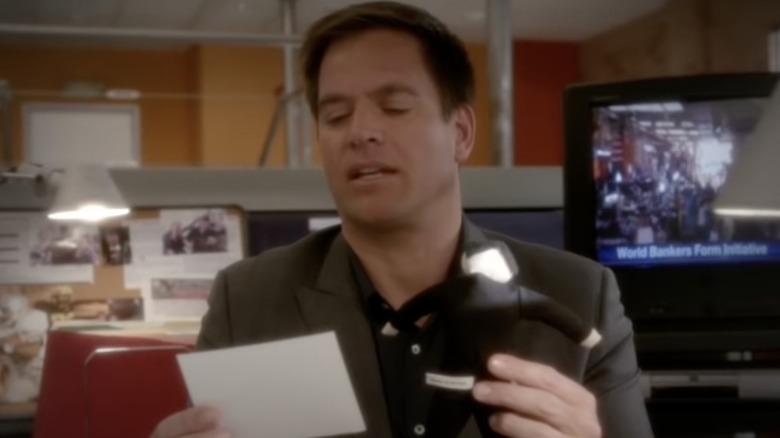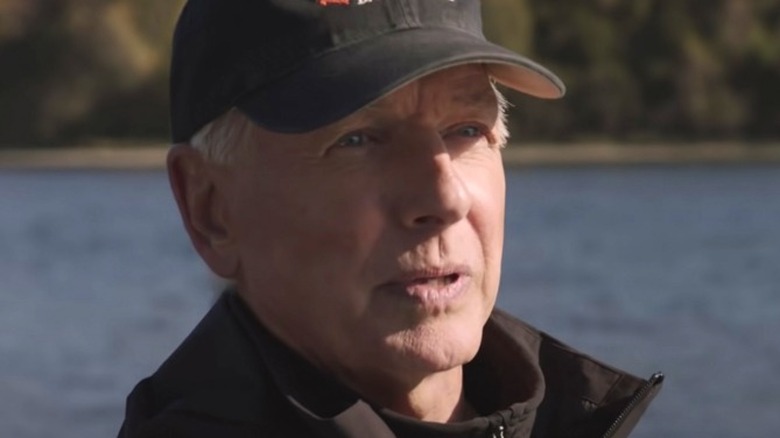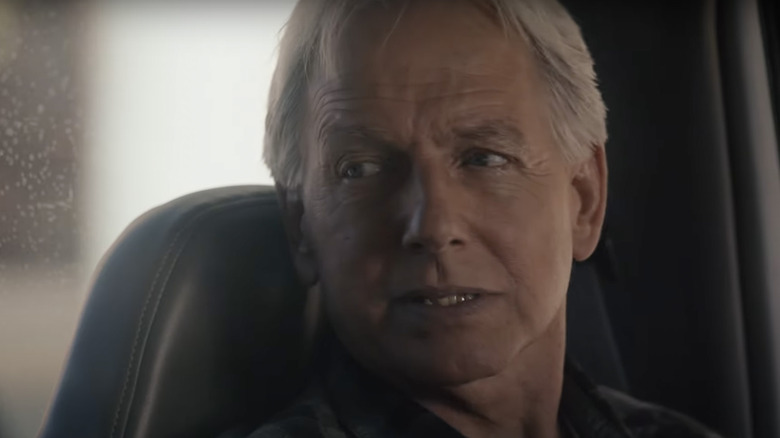The Ending Of NCIS Season 3 Explained
Does anybody remember a time when "NCIS" wasn't on the air? Anybody? It feels like the CBS drama dates back to the invention of color televisions themselves, but this is no knock on it. "NCIS" remains immensely popular, and it still manages to bring in new audience members, especially with the expanding world it's embraced in today's culture where a fictional universe is almost essential to any story pitch.
Just last year, "NCIS: Hawai'i" debuted, adding itself to a gang of crime-fighting spin-offs that already included "NCIS: Los Angeles" and "NCIS: New Orleans." For those who might like some accents thrown into their "NCIS," the first international spin-off, "NCIS: Sydney," is also on the way.
The point is not that there are some very happy, very comfortable producers somewhere out there thanks to this franchise but that "NCIS" has remained so popular for good reason. People want more and more of this world, and that's because, even in the beginning, the showrunners were putting as much dramatic stakes as they could into what could have easily been a by-the-numbers show.
In Season 3, writers could have coasted on their early success, keeping the gambles pocketed for later, but who wants to do that when you've got a top-rated drama and Mark Harmon at your disposal? Like many of the other 18 seasons (Season 20 is on the way, of course), Season 3 was full of drama. Here is the ending of "NCIS" Season 3 explained.
Gibbs' coma
In the two-part finale of "NCIS" Season 3, "Hiatus," Leroy Jethro Gibbs (Mark Harmon) ends up in an explosion during an investigation. This lands Gibbs in a coma, which he wakes from, missing 15 years of memories. The team's mysterious leader becomes just a bit less mysterious when he begins revealing things about his past he never had before. Jethro believes it's 1991 and he's just been in a different explosion while fighting in Desert Storm. This also brings back memories of his late wife and daughter, Shannon (Darby Stanchfield) and Kelly (Mary Mouser). The two were killed after witnessing the murder of a Marine while Jethro was deployed.
While the team continues investigating the crime at hand, Gibbs fights for his memories, sifting through boulders of buried trauma while he does. His doctor explains to Ducky (David McCallum), whom Jethro does not remember, that Gibbs is suffering from dissociative amnesia, which explains why he "remembers" the accident that landed him in the hospital. The new explosion, it is theorized, caused Jethro's airtight mind to relapse, bringing back painful memories he kept from even his closest friends. Ducky reveals at one point after being told Jethro had a wife and daughter that he knew all three of Gibbs' ex-wives and that none had children.
Gibbs' memory loss turns out to be temporary, but it takes him until the final minutes of the episode for everything to come back.
DiNozzo takes charge of the team
With Gibbs laid up in the hospital, the team is left without someone to lead their investigation, which now includes reconstructing the explosion that hurt Gibbs. At first, it appears NCIS Director Jenny Shepard (Lauren Holly) will be leading the team. She is the one to inform them of Gibbs' state and his memory loss. When Abby Sciuto (Pauley Perrette) asks if she can visit Gibbs, Shepard turns the idea down, wanting him to heal more and for the team to refocus the investigation.
Tony DiNozzo (Michael Weatherly) and Ziva David (Cote De Pablo) are a bit shocked that the director herself is taking Gibbs' place. Ziva encourages DiNozzo to say something by explaining that Gibbs, if he were in his right state of mind, would demand the senior agent on the team take charge. Springing into action, DiNozzo convinces Shepard to give him the case, which she says she was intending to do in the first place.
Asked why she made him go through an entire sales pitch, Shepard explains she only wanted to see if he had the same drive as Gibbs. In hindsight, it would not have made sense for the director of the entire agency to take on Gibbs' direct and demanding role of leading his team. As DiNozzo says to her, she needs to focus on the "big picture." It's a test for DiNozzo that Gibbs likely would have appreciated.
The investigation
In both parts of "Hiatus," the team is searching for an Abu Sayyaf member who has implanted himself within a military unit as a radioman. Jethro ends up in a coma and then without his memory, so the fact that he knows the terrorist's identity means very little until the literally explosive finale.
Gibbs regains his memories in "Hiatus (Part #2)" but only after catching up on world events over the last 15 years. He's surprised to learn that U.S. troops are still fighting in the Middle East and then is driven to vomit upon hearing the news of 9/11, which quickly turns to anger. The news is made worse by the fact that it's delivered by Gibbs' former mentor, Mike Franks (Muse Watson). It's noted that Franks retired from service after his warnings about Osama Bin Laden were ignored. After hearing the gory details of 9/11, Gibbs verbally condemns one of the few people he can actually remember.
When Gibbs finally does regain his memories, he finds himself in the boots of his mentor, warning higher-ups about the terrorist aboard a ship with Navy SEALs. Gibbs is informed that a covert mission at sea will be carried out to avoid potential negative publicity if boarding the ship while docked ends in an explosion. It all ends in tragedy when the ship explodes and all aboard are killed.
Gibbs makes a major decision
"NCIS" fans are well aware that Gibbs sticks around past the "NCIS" Season 3 finale, but the storyline does end with him resigning. Gibbs is clearly happy to get his memories back and to be with his team again, but the numerous deaths from the explosion Gibbs tried desperately to prevent are too much for him to carry as an agent. Gibbs may be walking away but not before making DiNozzo the team's new leader, telling the senior agent "you'll do" as he hands him his gun and badger.
Gibbs' decision comes in light of the fact that he was infuriated to learn that Franks had retired years before 9/11, frustrated by his bosses not listening to him about Osama Bin Laden. It's only after Gibbs himself listens as numerous people are killed thanks to the incompetence of his own politically motivated leaders that he understands why Franks walked away. He tells Shepard that he's no longer angry with his mentor and resigns, having been reminded in the harshest way that one man can only do so much and that not all systems work as fairly as he does.
